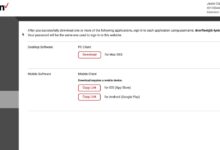B2B Omaha: 7 Powerful Strategies to Dominate the Market
If you’re looking to grow your business in the heart of America, understanding B2B Omaha is essential. This vibrant ecosystem offers unmatched opportunities for networking, growth, and innovation—all within a supportive Midwestern business culture.
What Is B2B Omaha and Why It Matters

The term B2B Omaha refers to the growing network of business-to-business enterprises, services, and professionals based in Omaha, Nebraska. While Omaha may not be the first city that comes to mind when thinking of major U.S. business hubs, it has quietly built a robust B2B infrastructure that rivals larger metropolitan areas.
Defining B2B in the Omaha Context
In Omaha, B2B operations span industries such as insurance, financial technology (fintech), logistics, healthcare, and agribusiness. These sectors rely heavily on intercompany relationships, long-term contracts, and strategic partnerships—all hallmarks of B2B commerce.
- Local companies like Mutual of Omaha and Union Pacific drive demand for ancillary B2B services.
- Startups and mid-sized firms provide software, consulting, and supply chain solutions to these corporate giants.
- The city’s central location makes it a logistics and distribution hub, further fueling B2B activity.
The Economic Impact of B2B Omaha
According to the Greater Omaha Chamber of Commerce, B2B transactions contribute over $12 billion annually to the regional economy. This includes everything from IT services to manufacturing components and professional consulting.
“Omaha isn’t just about cornfields and insurance—it’s a hidden engine of American B2B innovation.” — Sarah Thompson, Economic Analyst at UNO
The ripple effect of B2B Omaha extends beyond direct revenue. It supports thousands of jobs, fosters entrepreneurship, and attracts talent from across the Midwest.
Top Industries Driving B2B Omaha Growth
Omaha’s B2B landscape is not monolithic. It thrives on diversity, with several key industries acting as catalysts for inter-business collaboration and investment.
Insurance and Financial Services
Omaha is famously home to Mutual of Omaha and Berkshire Hathaway, the latter led by Warren Buffett. These institutions don’t just operate independently—they create ecosystems of subcontractors, tech providers, compliance consultants, and marketing agencies.
- Berkshire Hathaway’s portfolio includes over 60 companies, many of which engage in B2B partnerships locally.
- Startups offering AI-driven risk assessment tools are finding clients among Omaha’s insurance firms.
- Local law firms specializing in financial regulation see increased demand due to B2B compliance needs.
Fintech and Payment Processing
The rise of fintech has transformed B2B Omaha into a digital transaction hub. Companies like PayPal (which maintains a major operations center in Omaha) and newer players such as Flywire and Nelnet are reshaping how businesses handle payments, invoicing, and payroll.
- Omaha hosts one of the largest fintech employment bases per capita in the Midwest.
- B2B payment platforms developed here serve clients nationwide, especially in healthcare and education sectors.
- Incubators like the Techstars Omaha accelerator support early-stage fintech startups targeting B2B markets.
Agribusiness and Food Supply Chains
Nestled in the heart of the Corn Belt, Omaha leverages its geographic advantage to become a leader in agribusiness B2B solutions. From farm equipment suppliers to food processing logistics, the city connects rural producers with urban distributors.
- Companies like Conagra Brands rely on local B2B vendors for packaging, transportation, and quality control.
- Ag-tech startups in Omaha are developing IoT sensors for crop monitoring, sold directly to farming cooperatives.
- The Omaha Stockyards, though no longer active in live trading, have evolved into a B2B logistics and cold storage complex.
Networking and B2B Omaha Communities
One of the most powerful aspects of B2B Omaha is its tight-knit professional community. Unlike larger cities where networking can feel transactional, Omaha fosters genuine, long-term business relationships.
Chambers of Commerce and Trade Associations
The Greater Omaha Chamber and the Midlands Chamber of Commerce are central to B2B engagement. They host regular mixers, industry roundtables, and matchmaking events designed to connect suppliers with buyers.
- Monthly B2B expos allow small businesses to showcase services to enterprise clients.
- Specialized groups like the Insurance Industry Council of Omaha facilitate niche networking.
- Membership in these organizations often leads to referral-based contracts and joint ventures.
Co-Working Spaces and Innovation Hubs
Spaces like The Hatchery and WeWork Omaha have become breeding grounds for B2B collaboration. Entrepreneurs, freelancers, and small agencies work side-by-side, sparking partnerships that might not occur in isolated offices.
- Shared office environments reduce overhead while increasing visibility among potential B2B clients.
- Weekly pitch nights allow startups to present B2B solutions to investors and corporate reps.
- Many co-working spaces offer mentorship programs linking new founders with seasoned B2B veterans.
Digital Platforms and Online Networking
While in-person events dominate, digital platforms are gaining traction. LinkedIn groups like “B2B Professionals of Omaha” and Slack communities such as “Omaha Tech Connect” enable real-time collaboration.
- Local B2B directories like BizOmaha help companies find vetted service providers.
- Webinars and virtual trade shows have expanded access to B2B opportunities beyond geographic limits.
- Social media campaigns using hashtags like #B2BOmaha help amplify visibility for small firms.
How to Build a Successful B2B Strategy in Omaha
Entering the B2B Omaha market requires more than just a good product or service. It demands a strategic approach tailored to the city’s unique business culture.
Understand Local Business Culture
Omaha’s business environment values trust, reliability, and personal relationships. Hard selling rarely works; instead, success comes from consistent engagement and demonstrating long-term value.
- Take time to attend local events before pitching services.
- Emphasize stability and integrity in marketing materials—traits highly valued in Midwestern business circles.
- Avoid aggressive sales tactics; focus on consultative selling that addresses specific client pain points.
Leverage Local Partnerships
One of the fastest ways to gain credibility in B2B Omaha is through partnerships with established firms. Whether it’s a co-branded service or a referral agreement, aligning with trusted names opens doors.
- Partner with accounting or legal firms to offer bundled services to their clients.
- Collaborate with universities like Creighton or UNO on research or internship programs that serve B2B clients.
- Join forces with complementary businesses to bid on large contracts together.
Invest in Thought Leadership
Becoming a recognized expert in your niche builds authority and attracts B2B clients. In Omaha, thought leadership takes many forms—from speaking at chamber events to publishing white papers on industry trends.
- Write guest articles for local publications like Omaha Business Journal.
- Host workshops or webinars on topics like cybersecurity for small B2B firms.
- Share case studies showing how your service improved another Omaha business’s efficiency.
Challenges Facing B2B Omaha Today
Despite its strengths, B2B Omaha faces several challenges that could impact future growth if not addressed proactively.
Talent Acquisition and Retention
While Omaha has a skilled workforce, competition for top talent—especially in tech and data analytics—is intensifying. Larger cities often lure professionals away with higher salaries and perceived career mobility.
- Many B2B firms report difficulty hiring experienced software developers and digital marketers.
- Remote work trends have made it easier for talent to leave, even if they remain employed by Omaha-based companies.
- Solutions include stronger university partnerships, competitive benefits, and flexible work policies.
Access to Capital
Compared to coastal startup hubs, venture capital funding in B2B Omaha is limited. While angel investors and local banks support early-stage ventures, scaling often requires outside investment.
- Only 3% of national VC funding goes to Midwest startups, according to PitchBook.
- Some B2B entrepreneurs relocate or establish satellite offices in Denver or Chicago to attract investors.
- Local initiatives like the Omaha Startup Fund are working to close the gap with seed-stage grants and mentorship.
Market Saturation in Key Sectors
In industries like insurance and financial services, the market is mature and highly competitive. New B2B entrants must differentiate themselves clearly to stand out.
- Many consulting and IT service providers offer similar solutions, making pricing a key battleground.
- Innovation in niche areas—such as ESG compliance for insurers—can provide an edge.
- Branding and customer experience are becoming critical differentiators in B2B Omaha.
Future Trends Shaping B2B Omaha
The future of B2B Omaha is bright, with several emerging trends poised to redefine how businesses interact and grow.
Digital Transformation Acceleration
Post-pandemic, digital adoption has accelerated across Omaha’s B2B sector. Cloud computing, AI-driven analytics, and automated workflows are no longer luxuries—they’re expectations.
- Manufacturers are integrating IoT devices to monitor equipment performance in real time.
- Service providers are using CRM platforms like HubSpot to personalize client interactions.
- Even traditional industries like construction are adopting B2B software for project management and supply tracking.
Sustainability and ESG Initiatives
Environmental, Social, and Governance (ESG) factors are gaining traction in B2B Omaha. Large corporations are requiring their suppliers to meet sustainability standards, creating new opportunities for green-certified vendors.
- Companies offering energy-efficient logistics or carbon footprint reporting services are seeing increased demand.
- The City of Omaha’s Climate Action Plan is influencing B2B procurement policies.
- Investors are favoring B2B startups with clear ESG missions, especially in ag-tech and clean energy.
Expansion of Remote and Hybrid B2B Models
The shift to remote work has redefined B2B relationships. Many Omaha-based firms now serve national clients without needing a physical presence elsewhere, while also sourcing services from outside the region.
- Virtual sales demos and online contract signing have streamlined B2B transactions.
- Hybrid teams allow companies to tap into global talent while maintaining a local headquarters.
- This trend increases competition but also expands market reach for agile B2B Omaha businesses.
Success Stories from B2B Omaha
Real-world examples illustrate the potential of B2B Omaha. These companies started small but leveraged local advantages to achieve significant growth.
Buildertrend: From Omaha Startup to National Leader
Founded in 2006, Buildertrend began as a small software company serving local contractors. Today, it’s one of the leading construction management platforms in North America, used by over 50,000 companies.
- Its success was fueled by deep understanding of B2B pain points in the construction industry.
- Strategic partnerships with lenders and material suppliers helped scale its ecosystem.
- Acquired by Roper Technologies in 2021 for over $1 billion, proving Omaha can produce global B2B players.
Apparent: A B2B Marketing Powerhouse
Apparent, an Omaha-based digital marketing agency, has carved a niche in B2B branding and lead generation. It works with clients across the U.S., particularly in healthcare and manufacturing.
- Focuses on data-driven strategies that deliver measurable ROI for B2B clients.
- Known for its transparent reporting and client education approach.
- Regularly ranked among the top agencies in the Midwest by Clutch.co.
Blue Earth Software: Solving B2B Logistics Challenges
This ag-tech startup developed a SaaS platform that helps food distributors optimize routing, reduce waste, and improve traceability—critical for B2B compliance and efficiency.
- Partnered with several Nebraska-based cooperatives to pilot its solution.
- Secured funding from the Nebraska Angels network and expanded into Iowa and Kansas.
- Demonstrates how B2B Omaha startups can solve regional problems with national scalability.
How to Get Started in B2B Omaha
Whether you’re launching a new venture or expanding an existing business into the region, entering the B2B Omaha market requires a clear roadmap.
Conduct Market Research
Before investing time and capital, understand the specific needs of Omaha’s B2B landscape. Identify gaps in services, underserved industries, and emerging trends.
- Use resources like the U.S. Census Bureau’s County Business Patterns to analyze sector growth.
- Interview local business owners to uncover pain points and unmet needs.
- Attend industry conferences such as the Omaha Business Summit to gauge market sentiment.
Register Your Business and Build Infrastructure
Formalize your presence by registering with the Nebraska Secretary of State and obtaining necessary licenses. Choose a business structure (LLC, S-Corp, etc.) that aligns with your B2B goals.
- Select a location—downtown Omaha, Midtown, or suburban areas like Papillion or La Vista—based on client proximity and cost.
- Set up accounting, HR, and IT systems that support B2B operations, including invoicing and contract management.
- Ensure compliance with data privacy laws, especially if serving financial or healthcare clients.
Launch and Scale Strategically
Start with a minimum viable product (MVP) or pilot program targeting a specific niche. Use feedback to refine your offering before scaling.
- Offer free trials or discounted rates to early adopters in exchange for testimonials.
- Leverage local media and LinkedIn to announce your launch.
- Track key performance indicators (KPIs) like customer acquisition cost (CAC) and lifetime value (LTV) to guide growth.
What is B2B Omaha?
B2B Omaha refers to the network of business-to-business companies, services, and professionals operating in Omaha, Nebraska. It encompasses industries like insurance, fintech, logistics, and agribusiness, where companies sell products or services to other businesses rather than consumers.
How can I network in B2B Omaha?
You can network in B2B Omaha through local chambers of commerce, co-working spaces like The Hatchery, industry events, and online platforms such as LinkedIn groups and BizOmaha. Attending regular meetups and joining trade associations are also effective strategies.
What industries dominate B2B Omaha?
The dominant industries in B2B Omaha include insurance (e.g., Mutual of Omaha), financial technology (e.g., PayPal), agribusiness (e.g., Conagra), and logistics (e.g., Union Pacific). These sectors drive demand for supporting B2B services in tech, marketing, legal, and supply chain management.
Are there funding opportunities for B2B startups in Omaha?
Yes, there are several funding opportunities for B2B startups in Omaha, including the Omaha Startup Fund, Nebraska Angels, and accelerator programs like Techstars Omaha. Additionally, local banks and credit unions offer small business loans tailored to B2B ventures.
How does B2B Omaha compare to other Midwest cities?
B2B Omaha stands out for its strong corporate anchors, low cost of doing business, and collaborative culture. Compared to cities like Des Moines or Kansas City, Omaha offers a tighter professional network and easier access to decision-makers, making it ideal for relationship-driven B2B growth.
B2B Omaha is more than just a regional business network—it’s a dynamic ecosystem where innovation, tradition, and community converge. From its powerhouse corporations to its agile startups, the city offers fertile ground for B2B success. By understanding the local culture, leveraging strategic partnerships, and staying ahead of digital and sustainability trends, businesses can thrive in this often-underestimated market. Whether you’re a local entrepreneur or an outsider looking to expand, B2B Omaha deserves a spot on your radar.
Further Reading:








